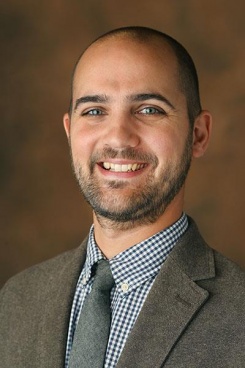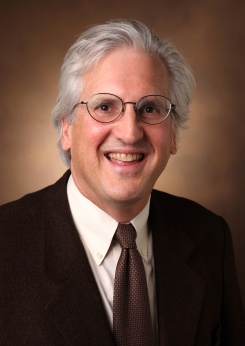Pain Perception in Patients with Alzheimer’s and Cancer
October 10, 2019
https://discover.vumc.org/2019/10/pain-perception-in-patients-with-alzheimers-and-cancer/
Are older adults with cancer and Alzheimer’s more sensitive to pain?
Researchers at Vanderbilt University Medical Center and The Ohio State University have been awarded a five-year, $5 million grant from the National Institutes of Health and the National Institute on Aging to study the impact of cancer and co-occurring Alzheimer’s disease on pain perception.
Billings interviews Christopher Watson during inaugural statewide Association of Infant Mental Health in Tennessee conference
September 20, 2019
Giovanni Billings, Psy.D., IMH-E®, Assistant Professor of Clinical Psychiatry & Behavioral Sciences, hosted and interviewed Christopher Watson, Ph.D., IMH-E® (IV) Co-Director of the Center for Early Education and Development (CEED) at the University of Minnesota-Twin Cities for the Inaugural statewide conference for the Association of Infant Mental Health in Tennessee (AIMHiTN). The conference focused on "Nurturing a Culture of Relationship & Reflection in Practice and Programs" for systems serving infant care at the Scarritt Bennett Center.
Inhibited Temperament: An Early Risk Factor for Schizophrenia
August 29, 2019
https://discover.vumc.org/2019/07/inhibited-temperament-an-early-risk-factor-for-schizophrenia/?utm_campaign=discover-newsletter-29-08-2019&utm_source=marketo&utm_medium=email
Schizophrenia is a heterogeneous disorder, with patients exhibiting diverse clinical manifestations. Identifying pre-morbid factors that account for variability in schizophrenia is of interest to improve the identification of predisposed individuals and to provide more personalized, effective treatment. New research suggests childhood inhibited temperament may be a pre-morbid difference to target in preventative interventions.
Taylor co-authors JAMA Psychiatry article on age-related mental disorders
August 29, 2019
As the percentage of U.S. adults older than 65 years continues to grow, so too does the need for preventing mental illness among older adults as well as improving clinical services and outcomes for older patients with psychiatric disorders. Psychiatry's obligation to treat this population, and an agenda for research and enhancement of clinical services, is outlined by Warren D. Taylor, M.D., M.H.Sc., James G. Blakemore Professor of Psychiatry and Director, Division of General Psychiatry, and Charles F.
Psychiatric Hospital debuts new inpatient unit for psychotic disorders
How proteins spread linked to Alzheimer’s disease sex differences
Psychiatric evaluations crucial in political asylum decisions
$10 million gift bolsters psychosis research efforts
Cascio work on affective touch, autism featured in Science Magazine
June 3, 2019
Associate Professor of Psychiatry & Behavioral Sciences Carissa Cascio, Ph.D., recently received national news coverage for her work on affective touch and autism. The story, titled "'I will feel actual rage.’ Unusual responses to kind touches could help explain autism traits," was originally covered in Spectrum News and picked up by Science Magazine. The article discusses findings from her lab and others.
Riddle, Petrie invited to speak as part of Vanderbilt Alumni Speaker Series
April 4, 2019
Meghan Riddle, M.D., Assistant Professor of Psychiatry & Behavioral Sciences, and Bill Petrie, M.D., Professor of Clinical Psychiatry and Behavioral Sciences, were invited to take part in Vanderbilt University's Alumni Speaker Series, themed "Looking in the Rearview Mirror." The two will present their talk, "Happiness in Life and Work: Reflections from Two Psychiatrists," on Sunday, Apr. 7, from 4:30-6:00 p.m. in Commons Center 235.
Click here for more information on the lecture.









